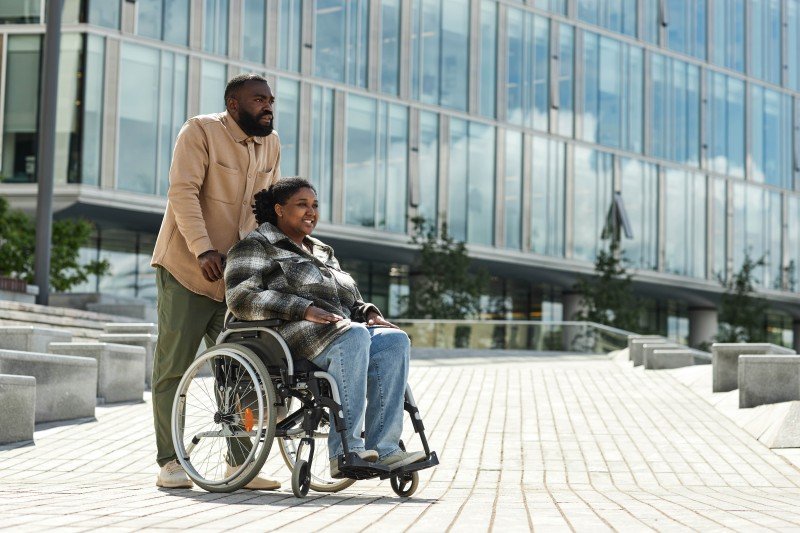10 Places That You Can Find Scooters For Sale Near Me

Exploring Disability Scooters for Sale Near Me: A Comprehensive Guide
In the modern world, mobility help have actually ended up being progressively advanced and available, boosting the quality of life for people with impairments. Among these aids, disability scooters stand apart as a versatile and efficient solution, providing liberty and self-reliance to those who may find conventional walking help restricting. This article looks into the world of disability scooters, exploring how they work, the benefits they supply, and where to discover them for sale near you.
What Are Disability Scooters?
Disability scooters, also known as mobility scooters or electric scooters, are motorized vehicles developed to assist people with mobility problems. These scooters are normally equipped with a seat, handlebars for steering, and a series of functions that improve convenience and security. They are powered by rechargeable batteries and can be utilized both indoors and outdoors, depending upon the model.
Kinds Of Disability Scooters
Three-Wheeled Scooters
- Pros: More maneuverable in tight spaces, lighter and frequently easier to transport.
- Cons: Less stable on unequal surfaces, might feel less secure for some users.
Four-Wheeled Scooters
- Pros: Greater stability and balance, much better for outside usage, specifically on rough terrain.
- Cons: Less maneuverable in tight areas, typically heavier and more difficult to transport.
Travel Scooters
- Pros: Designed for simple disassembly, making them ideal for travel.
- Cons: May have a much shorter range and lower speed compared to full-sized designs.
Sturdy Scooters
- Pros: Built to support greater weight capabilities, frequently more durable and strong.
- Cons: Heavier and less portable, might need more upkeep.
Standing Scooters
- Pros: Provide an option for users who prefer or require to stand.
- Cons: Less common, may not be as comfortable for long-lasting usage.
Advantages of Disability Scooters
Boosted Mobility
- Disability scooters allow users to take a trip longer ranges and browse various environments with ease, from grocery stores to outdoor parks.
Increased Independence
- By reducing the requirement for support, these scooters empower users to preserve their independence and perform daily activities more easily.
Improved Quality of Life
- Scooters can considerably boost social and recreational activities, allowing users to participate in neighborhood occasions and preserve a more active way of life.
Cost-efficient
- Compared to other mobility aids like power wheelchairs, scooters are typically more affordable and have lower maintenance expenses.
Customizable
- Lots of scooters come with options for customization, consisting of adjustable seats, speed settings, and additional safety features.
Where to Find Disability Scooters for Sale Near Me
When trying to find disability scooters for sale, there are several choices available to guarantee you find the ideal fit for your requirements.
Regional Mobility Aid Stores
- Pros: Opportunity to test drive and see the scooters in individual, experienced personnel for personalized guidance.
- Cons: Limited choice compared to online stores, may be more pricey due to overhead costs.
Online Retailers
- Pros: Wide range of designs and brands, often more competitive pricing, benefit of shopping from home.
- Cons: Can not check drive before acquiring, possible shipping expenses and delays.
Specialized Dealers
- Pros: Specialized in mobility scooters to buy aids, often provide extended warranties and financing options.
- Cons: May be more costly, fewer physical places.
Second-Hand Markets
- Pros: Affordable alternatives, chance to examine and evaluate the scooter before buying.
- Cons: Limited warranty, might need upkeep or repairs.
What to Consider When Buying a Disability Scooter
User Needs and Abilities
- Physical Condition: Consider the user's strength, mastery, and stability.
- Lifestyle: Think about where the scooter will be utilized most regularly (indoors, outdoors, both).
Scooter Features
- Range and Battery Life: Ensure the scooter can handle the distances you need to take a trip.
- Speed and Maneuverability: Choose a scooter that matches your speed choices and the areas you navigate.
- Weight Capacity: Verify that the scooter can support the user's weight.
- Storage and Transport: If you need to carry the scooter, search for models that are lightweight or simple to take apart.
Safety and Comfort
- Braking System: Check for reputable and responsive brakes.
- Seating: Opt for a comfy and adjustable seat.
- Lighting and Accessories: Consider features like headlights, turn signals, and baskets for added convenience.
Budget and Financing
- Preliminary Cost: Compare rates from various retailers.
- Upkeep Costs: Factor in the expense of batteries, repairs, and routine maintenance.
- Financing Options: Some dealers provide funding or lease-to-own programs.
Service warranty and Support
- Guarantee: Look for a thorough guarantee that covers both parts and labor.
- Customer Support: Ensure the merchant provides reputable customer care and support.
FAQs About Disability Scooters
Q: Are disability scooters covered by insurance?
- A: Many insurance coverage policies, including Medicare, can cover a portion of the cost of a disability scooter. However, coverage differs, so it's important to contact your service provider for specific details and requirements.
Q: How typically do I need to charge the battery?
- A: The frequency of battery charging depends upon the model and use. Typically, you ought to charge the battery after each use or a minimum of once a week if the scooter is not used day-to-day.
Q: Can I use a disability scooter on public transportation?
- A: Yes, many disability scooters are created to be easily transportable and can be used on public transportation, such as buses and trains. Nevertheless, it's a good concept to inspect the particular rules and policies of your local transit authority.
Q: Are there any age restrictions for utilizing disability scooters?
- A: There are no strict age limitations, but users ought to have the ability to operate the scooter securely. Many scooters are developed for older grownups, but they can be utilized by anybody who requires help with mobility.
Q: Can I customize a disability scooter to fit my specific needs?
- A: Many scooters offer personalization alternatives, such as adjustable seats and speed settings. For more comprehensive modifications, it's best to talk to a professional mobility help service provider.
Tips for Buying a Disability Scooter
Research study Thoroughly
- Read Reviews: Look for reviews from other users to get a sense of the scooter's efficiency and reliability.
- Compare Models: Consider different designs and brands to find the one that best fulfills your needs.
Test Drive Before Buying
- If possible, test drive the scooter to ensure it feels comfortable and fulfills your requirements.
Request For Professional Advice
Check for Local Incentives
- Some city governments and organizations use rewards or subsidies for buying disability scooters. Check with your local disability services for more information.
Think About Future Needs
- Think of any possible modifications in your physical condition that may affect your scooter requires in the future.
Disability scooters are an important tool for improving mobility and independence for individuals with impairments. By thinking about the user's requirements, the features of the scooter, and the offered choices for purchase, you can find the perfect scooter to suit your way of life. Whether you're patronizing a regional shop or browsing online, putting in the time to research study and test drive different models will guarantee you make an informed and advantageous decision. With the best scooter, the world ends up being buy a mobility scooter more available and pleasurable location.
Additional Resources
- Mobility Aid Providers: Check local listings for providers specializing in disability scooters.
- Online Reviews: Websites like Consumer Reports and mobility help forums provide detailed reviews and user feedback.
- Federal government Programs: Look into local and nationwide programs that use monetary support for mobility aids.
By exploring these resources and following the ideas outlined in this article, you can confidently find and purchase a disability scooter that satisfies your particular requirements and improves your everyday life.


